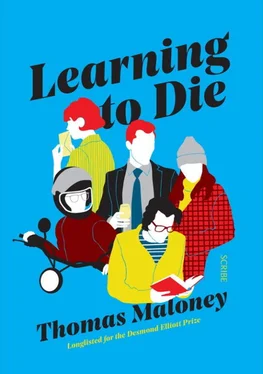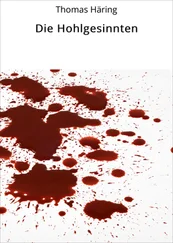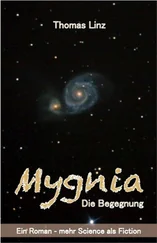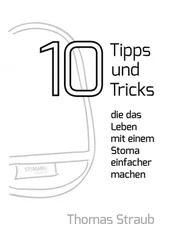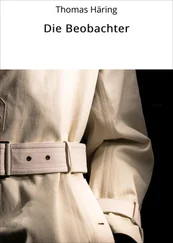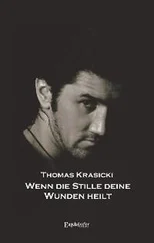But now some stubborn lever has shifted. Seeing and speaking to Becks has effected a recalibration, has swept his expectations into line with his reality, and there is much more relief in this change than discomfort. Ambition is a stomach ulcer, healed now.
Again and again he settles himself into the warm, fragrant memory-bath of Becks’ tragic splendour, her admission that she’s thought of him, her reciprocal curiosity, that veined hand that used to hold his so tightly on rope bridges and rafts and reaching across from one sleeper-train bunk to the other as they rattled across a night-blotted world.
He takes from his shelf a copy of the York University magazine dated 2002, lets it fall open at a familiar page, and decides that his second-prize-winning poem needs an extra, final stanza. He wrestles with the ten lines for an hour, subdues them at last, writes out a fair copy, studies it judiciously, and then screws it into the usual tight ball for committal to the sea. Amen to an idiot prayer.
What puzzles him is that each time he remembers Becks, Brenda’s absence gnaws at him. Brenda-guilt and Brenda-love. Perhaps a trace of Brenda-hope. Those, after all, are his reality. He writes Dear Brenda across the specious blankness of page after page, but nothing is sent. And still he thinks of Becks.
Becks, Natalie, stands in front of the bathroom mirror, calmly putting off the pleas of her bladder. She turns her head a little, lifts her chin, tries a different mouth. The puffy grey nubs under her eyes aren’t a good look, but she feels worse — bad enough to threaten the breezy competence that she wears each day like a uniform. Bad enough to need an explanation.
She tears open the slim packet she bought last week and unzips her jeans. Dips into the singing cord of pee, extracts, watches. The tiny front of wetness advances rapidly, overrunning the window while she’s still in full flow.
She waits the obligatory sixty seconds, tilting the wand this way and that, weighing its physical substance, watching the play of light. No, this isn’t a dream, and she isn’t seeing double. A flash of primordial triumph is overwhelmed by panic. Oh shit oh shit oh shit.
‘The soul’s greatness consists not so much in climbing high and pressing forward as in knowing how to adapt and limit itself.’
Montaigne
Mike Vickers casts a jaded glance across his screens, locks his computer, grabs his sunglasses and slips out of the office. He never really believed in his success, so he doesn’t take failure to heart. He lost the finals contest, of course, and the barbed feedback left little doubt that he lost to Crispin. He’s heard a rumour that his old boss is charging half the fee for MRI 2.0.
Last week he was sent a link to an article announcing that the Americom pension fund, his biggest investor, has a new CIO, and that his old sparring partner, the ambitious young woman in green, has been tasked with overhauling the hedge fund portfolio. Transparency and cost-effectiveness are to be the new watch-words, says the article: neither is a strong suit for the MRI. Mike expects the notice of redemption any day now.
In July the system gained a healthy three per cent, and for a few precious days the year’s performance turned from red to black (before fees, of course). But this bounty soon trickled between its careless algorithmic fingers. George’s grand predictions at the urinal have been flushed away like so much coffee-charged piss.
Mike paces the streets slowly so as not to sweat, jacket slung over his shoulder, and finds himself in a small park littered with the rejoicing bodies of office workers showing off their holiday tans. Bodies above, bodies below: like most of the city’s favourite lunching spots, this was once a burial ground. A many-layered lasagne of corpses, eighty thousand in all. The headstones have been respectfully cleared away and stacked along the boundaries, all except one large gated tomb — retained for aesthetic merit, the information board says, but crumbling now, pompous occupants long forgotten.
As Mike leans against the hot, white stone, shaded eyes wandering over the carnal cornucopia with its summer dresses, its kicked-off shoes and its gorgeous legs in a hundred inventive attitudes of repose, he tries to reconcile this vague awareness of bodies above and below, of Natalie, of Dan, of the living, the dying and the dead. Dan’s illness is a window, facing downward.
His phone chirps: a message from Crispin, the first since the day of the übernerd’s dismissal, sixteen months ago. That old ‘good luck’ message is helpfully displayed above the new missive, which reads: Michael, hope all well. Want to meet for lunch? C. Bookends to Mike’s fleeting career as the Rocket Jesus.
‘ What ? What is it?’
The Mocks’ meals take longer than they used to. Meat has to be pre-chopped; spaghetti is off the menu. Dan spears and lifts his food with a clumsy, repeating motion and chews slowly, trying to avoid mess. They’ve developed an understanding that Natalie will do about three-quarters of the talking, but all this week she’s been giving one-word answers. Now she holds Dan’s gaze, then exhales slowly and for a long time, so that when she speaks it must be with the last whit of breath in her swimmer’s lungs.
‘I’m—’ (a needle-sharp ray of realisation dawns as her lips purse to form the ‘pr’) ‘—pregnant.’
The earth is rolling again, cornering, and Dan tries to find his balance. Out of all his incoherent reflexes of thought and feeling, the first to take expressible shape is a simple question of process.
‘But how? Did you forget your—’
Natalie is already shaking her head. His jaw drops; the fork eludes his clumsy grasp and clatters on the plate. Natalie slides off her chair and kneels beside him, takes his greasy hand. The muscles of her face slowly draw back in a spasm of silent crying. She might be eight years old.
‘I don’t want this to be the end.’ She mouths her confession, barely whispering. ‘I can’t just start again. You can’t tell me to start again.’
The repercussions that Dan has already traced out during long, painful meditations, that he was determined to avoid and thought he had, catch up with him in a sickening rush. A child. A child whom, at the rate he’s quite literally going, he will never hold or kiss; a mystery he will never unravel, a priceless treasure he will have to let go: hello, goodbye. And a chain fixing Natalie to the past, making impossible that renewal, that reinvention he’s imagined for her in the nobler corners of his mind.
And yet at the same time he perceives the wonder of it, the miracle, like a faint, cold, dawn light falling across this tangled web of sorrows. And he recognises the tribute, the act of devotion: binding the future to the past.
But sharper and closer than either the sorrow or the wonder is the acute sting of misapprehension, of his blithe failure to comprehend the only person he can ever hope to comprehend. Would you call it a betrayal? (Stupidly, Dan’s memory snatches at the only available comparator — the time Mike nabbed the ’92 science prize after stealing Dan’s idea for his project — then flings it away in despair.)
‘I can’t believe what you’ve done,’ he murmurs, at last. ‘I just can’t believe you’ve done it.’
Natalie’s face has recovered itself, become a grown woman’s again — his wife’s again — though still streaked with tears. She wipes them away with precise fingers.
‘Well, I have, so let’s make the best of it.’
James has almost finished packing, the Boatman drawling softly from the tape player, when Mrs Peacock’s doorbell rattles his Anglo-Irish-Portuguese bones. She doesn’t seem to be home, so he traipses down the stairs himself and finds Trudy standing in the road, looking pained, with her hands resting on Hugo’s narrow shoulders. Could James look after Hugo for an hour or so, just this once? The wounded look on her face is not, in fact, embarrassment at having to go back on Rob’s angry vow, but actual physical pain — she has a cracked tooth. Hugo, who has made his mouth as small as possible in an effort not to smile, looks like a solemn, pinched little wizard.
Читать дальше
